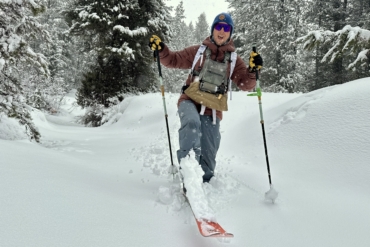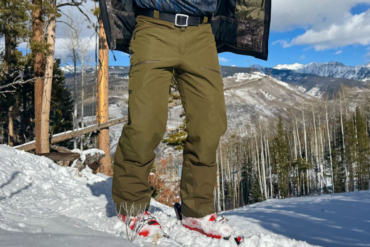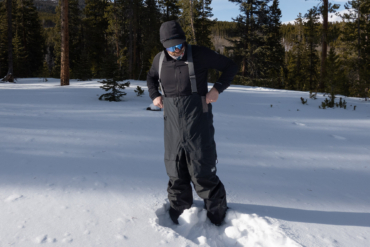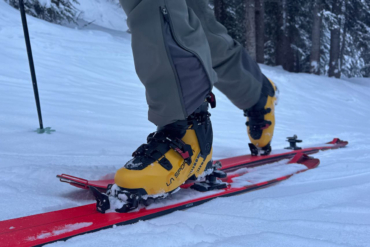After a wild labor conflict that involved prolonged strike threats and painstaking negotiations, Vail’s CEO gave employees good news on Monday.
During the winter of 2021-2022, headlines focusing on Vail Resorts were rarely positive for the company. Ski patrollers at Utah’s Park City spearheaded a labor negotiations effort that dragged on through 50 meetings.
Meanwhile, resort clientele across Colorado complained about issues that staff shortages appeared to produce: closed terrain and long lift lines anchored the comments.
Last month, the Park City Professional Ski Patrol Association (PCPSPA) reported it came to a satisfactory agreement with Vail’s corporate representatives. Now, Vail Resorts CEO Kirsten Lynch does them and all other Vail employees one better.
View this post on Instagram
On Monday, in an open letter to employees across the company, Lynch announced a wage hike for all employees to $20 per hour minimum. The letter also pledged progress toward more affordable employee housing and a bolstered human resources department.
According to the letter — available in full on Vail’s website — the changes total $175 million in planned investments for the company.
Vail Resorts Company Minimum Wage Increase Details
Multiple pay increases will be effective at all 37 Vail properties in North America for the 2022-2023 season. The $20 wage baseline across the company applies to “all employees,” including tipped workers.
Some workers, however, will see even bigger gains. The letter also announced a minimum wage bump to $21 per hour for patrollers, plus some maintenance and driver staff.
Finally, staff at British Columbia, Canada’s Whistler will get a minimum wage increase from CAD $15.20 to CAD $20.
The increases figure to be significant for most staff company-wide — the old entry-level rate was $15 per hour.
For some ski patrollers, though, it could be an even more positive signal. Part of the PCPSPA’s complaint against Vail Resorts focused on the fact that, even though its workers faced major occupational hazards and maintained intensive certification standards, the company still paid patrollers the least of all Park City employees.
View this post on Instagram
Before the monthslong negotiation period between the groups, Park City patrollers started at $13.25 per hour. PCPSPA’s efforts resulted in a $19-per-hour minimum wage.
The letter called the new pay increases, as well as the other measures, “a pivotal shift in our company’s direction with a new strategic focus on all [employees].”
Affordable housing promises look to play another key role in the new focus.
Letter Pledges Affordable Housing ‘Pursuit’ but Avoids Specifics
The letter’s wages section is by far its most specific. Vail says it plans to “aggressively pursue” new affordable housing for employees, but it doesn’t say exactly how.
It does specify that it aims to build new units on the land it owns and “pursue company leases” in existing housing developments local to its properties.
Vail estimates that it currently maintains about 7,000 affordable housing beds across its network.
The letter reads:
We ensure that the rental rates remain affordable for our employees. We plan to expand affordable housing further. This is not easy to do. It requires mountain communities to be fully committed to affordable housing, and the approvals needed to allow us to build on the land we own. We are actively working on several key projects to achieve this, and look forward to sharing more on this soon.
The details of those projects remained unclear as of this writing.
Better Human Resources, Plus Improved Remote Work and Raise Structure
Effective immediately, Lynch wrote, Vail will invest an additional $4 million per year into its HR department. The infusion, she said, will add 66 more people to the company’s central HR teams. That amounts to a 50% increase in “central HR Services staff, dedicated to the resorts in each region.”
View this post on Instagram
The investment targets internal support for hiring, onboarding, payroll, and case management. It also seeks to streamline its processes through upgraded technologies and simplified procedures.
Better options for remote workers are also on tap. Vail’s corporate offices in Broomfield, Colo., are set to reopen on May 16 after 2 years of closure due to COVID-19.
When they do, the letter says that employees based there won’t have to spend a specific number of days at the office, nor live in Colorado. Instead, it says, they can live and work in any state where Vail currently operates.
Lynch wrote that Broomfield employees have earned the opportunity by proving themselves successful over 2 years of remote work.
Finally, the letter promises a year-end merit increase bump for salaried Vail employees. The measure looks to double average raise percentages from 3% to 6%.
All in all, the promises in Lynch’s letter appear to seek a big impact among Vail employees just over 3 months into her tenure as CEO. However, she also acknowledged that there’s more work to do:
One of my biggest takeaways from these past 100 days is the importance of each of you — our team. We have a mission that we all know and love: “Experience of a Lifetime.” You are the core of this mission. We cannot create an “Experience of a Lifetime” for our guests without first creating an “Experience of a Lifetime” for you — unfortunately, we have fallen short on that. … Does this solve every concern and piece of feedback you have shared over the past 100 days? No, but I hope they demonstrate our commitment to continued improvements and progress.








